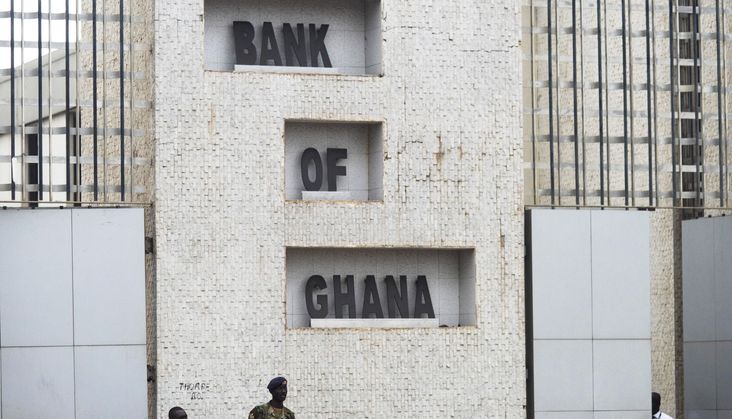The Monetary Policy Committee (MPC) of the Bank of Ghana (BoG) has maintained the policy rate at 29.5 percent.
Governor of the BoG Dr Ernest Addison said this during the 112th MPC press conference in Accra on Monday, May 22.
This comes just a few days after the International Monetary Fund (IMF) approved the $ 3 billion programme for Ghana.
“The Committee noted the significant decline in headline inflation from the beginning of the year of more than 12.0 percent.
“The percentage of items in the CPI basket with inflation of more than 50 percent and above is receding, an indication of a strong return to the disinflation path”, Governor of the Bank of Ghana, Dr. Ernest Addison said at a press briefing.
The MPC further observed that the $ 3 billion programme approved for Ghana by the International Monetary Fund (IMF) has reinforced economic recovery.
Governor of the BoG Dr Ernest Addisonsaid at the 112th MPC press conference in Accra on Monday, May 22 that this should further rebuild investor confidence in the economy.
He said “The Committee assessed that the recent approval of the 3bn ECF arrangement has reinforced recovery efforts at restoring macroeconomic stability and debt sustainability. This should further help re-establish investor confidence in the domestic economy.
“While this development is positive for the domestic economy, it is conditional on the strong implementation of the fiscal and structural policies under the programme going forward. This includes structural reforms on tax policy, revenue administration, and public financial management to boost revenue s and reposition fiscal policy implementation on a consolidated and sustainable path.”
It is recalled that the IMF Mission Chief for Ghana Stéphane Roudet, said that the $3 billion bailout would ensure macroeconomic stability in Ghana’s economy.
Similarly, he said, it would lead to inclusive economic growth in the coming months.
Mr Stéphane Roudetalso said the programme would result in reforms to encourage private sector investments and also build international reserves.
“There will be reforms in the energy and cocoa sectors,” he said during a joint Ghana -IMF press conference in Washington on Thursday, May 18.
“It will be restoring macroeconomic stability, for higher and more inclusive growth. It has reforms that will make the economy more resilient and likely to withstand shock in the future,” he added.


